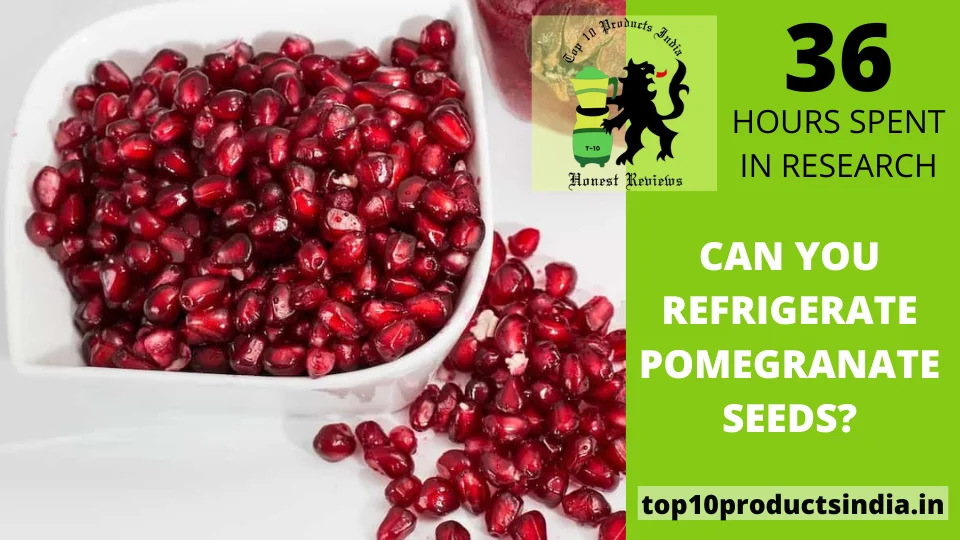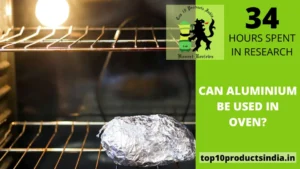For many of you out there who really want to preserve and maintain the freshness level of your pomegranate seeds, refrigeration is another alternative.
So today, we’re going to go through all the refrigeration techniques that you really have to consider when it comes to the preservation of your pomegranate seeds. We will go through the pros, the cons, and the dos and don’ts that will help you maximize your refrigeration. So please join us today, whether you want to prolong their lifespan or just want to learn more. This is definitely the page for you, so now we’re going to dig deep into the secrets behind the refrigeration of pomegranate seeds.
The Freshness Dilemma: Refrigeration or Room Temperature?

When it comes to the freshness dilemma of pomegranate seeds, we often tend to quarrel about whether refrigeration is best or room temperature storage is just the way to go. Let’s just look into both of them and see.
Refrigeration:
Pros:
- Extended Shelf Life: when you refrigerate these seeds, the natural decomposition process is slowed down. This helps your seeds stay fresh for a longer time.
- Retained Freshness: stirring them in cold temperatures helps preserve the seeds, their flavour, taste and texture, ensuring that they stay fresh and juicy.
- Reduced Spoilage: it helps reduce the growth of molds or even spoiling the seeds in general. Usually, in warmer regions, this tends to happen a lot, so refrigeration helps reduce the risk of that happening, hence preserving the life of your seeds.
Cons:
- Potential Flavor Loss: If you store them in the fridge for a very long period of time, these seeds tend to lose their flavour over time.
- Texture Changes: These seeds stored in the refrigerator tend to become harder or let me say, sometimes they can even become icy. So, that really affects the texture of the seeds by reducing their quality.
Room Temperature:
Pros:
- Enhanced Flavor: Stirring them at room temperature preserves the original flavour of our pomegranate seeds.
- Natural texture: Room temperature allows us to maintain the original texture, the juiciness and the flavour of the seeds.
Cons:
- Limited Shelf Life: When stored at room temperature, they tend to have a shorter lifespan than refrigerated ones. This is mainly due to increased Spoilage since there is no since there will be warmth that tends to produce moulds.
- Increased Spoilage Risk: When these seeds are exposed to warmer temperatures, the speed of decay is increased, leading to mould growth.
So in conclusion, the choice between room temperature or refrigeration storage depends on personal preferences. Sometimes environmental factors might come into hand or usage timelines also. We suggest that you experiment for yourself and observe and analyze which storage method is best for you to maximize the freshness and flavour of your pomegranate seeds.
How Long Can You Refrigerate Pomegranate Seeds?
The duration of keeping pomegranate seeds in the fridge depends on a number of factors, such as the time you put them in the fridge. Were they already fresh, or you personally? What do you want, what do you prefer?
But generally, it’s advisable to keep them in the fridge for about three to five days if you really want to maintain the quality and the original juiciness of your seeds. It is very important that you keep the pomegranate seeds in airtight containers so as to avoid moisture losses and reduce the amount of air flowing inside the seeds.
This is because these two conditions really quicken their rot process. And just to add on, it’s very important that before you eat your seeds or before you cook them or prepare them, check them for any signs of Spoilage. If any seeds appear to be Squishy or have a weird colour or even a bad smell, we suggest that you dispose of them and not consume them.
Preserving Pomegranate Seeds: Best Practices
To keep the original flavour and freshness of pomegranate seeds, we really have to look deeper and pay attention to their storage techniques. So listed below are some of the best preservation methods we have found ideal.
- Gentle Extraction: When harvesting your seeds from pomegranate, it’s important that you really avoid or hang them with care so that they don’t damage their fragile membranes because this can also lead them to spoil earlier than the expected date.
- Thorough Drying: After harvesting your seeds, pat them dry with a cloth or towel. Just try to remove the moisture or any signs of water.
- Airtight Storage: Keep your seeds in an airtight container and minimize their exposure to air. This prevents moisture in the atmosphere from being in contact with the seeds. You can also use resealable plastic bags. It’s also okay.
- Refrigeration: Always keep your seeds in your fridge to maintain their freshness level. We can just suggest that you keep the temperatures between zero to four degrees Celsius.
- Avoid Freezing: When keeping your seeds in the fridge, avoid putting them in the deep freezer, as this will reduce their flavour or even temper their texture.
- Regular Inspection: From time to time, always check your seeds for Spoilage, unusual colours, and mould growth. If you see seeds that seem to have any of these signs, please throw them away.
- Use Promptly: Refrigeration doesn’t keep them fresh for months and months. If you really want to enjoy the freshness of pomegranate seeds, eat them within a few days after refrigeration.
So, these are the best practices we have found to optimize your refrigeration of pomegranate seeds.
Common Mistakes to Avoid When Refrigerating Pomegranate Seeds
Many people usually make these mistakes when it comes to storing these seeds in the fridge, and this has really affected both their freshness and flavour.
Sometimes, they even deteriorate before the due date.
- Excessive Moisture: If these seeds are stored in the fridge with water or not properly dried, it can lead to the growth of moulds and spoil your seeds, so it’s recommended that you thoroughly dry them before storing them or refrigerating them.
- Improper Storage Containers: Using containers that allow air in and out or expose your seeds to air really tempers the freshness of your pomegranate seeds, as the seeds are also exposed to atmospheric moisture.
- Overcrowding: not giving your seeds enough space to breathe. Don’t take it literary but I mean to breathe like your seeds must not be clouded or in just one space or squashed. Don’t squash them into a contain store them properly because if you squash them they might it might lead to premature Spoilage.
- Failure to Inspect: from time to time, just check on your seeds whether they’re still okay for consumption or not. You check for things such as color, texture, even smell, mold growth.
- Extended Storage:Don’t keep your pomegranate seeds in the fridge for a very long period of time as this will affect the quality and the flavor of your seeds over time. So it’s essential that you keep them for the right amount of time, not for too long.
- Freezing: I strongly advise that you don’t freeze them freezing them. If you freeze your seeds, they become hot, and when they dry the texture, the original texture and flavour are affected. It’s mixed with a beetroot.
Of water, if you get the sense. So, by looking out for these common mistakes, I assure you that refrigerating your pomegranate seeds will be the best method. So, just look out for these factors and make sure you don’t freeze them.
Exploring Cultural Perspectives: Refrigerating Pomegranate Seeds Around the World
If we look at the traditional methods of preserving our seeds from different parts of the world, we tend to really see interesting views on food options worldwide.
If we look at places like the Mediterranean and Middle Eastern cuisines, pomegranate seeds are abundant. They are everywhere. It’s like they are traditional. So, when it really comes to refrigeration, it’s not really a common practice since the seeds are everywhere.
So there’s no really need to keep them or store them. Although in places like the Western cultures where we are, the modern world, where these seeds are array, refrigeration is what we really rely on since these seeds are perishable.
Additionally, in places where the temperatures are a bit higher, refrigeration is very necessary. Actually, they do use it to preserve their original freshness, and usually, in hot areas, these seeds tend to degrade quickly.
But despite all our differences. We still enjoy the seeds and love the seeds for their original and nutritional benefits.
Final Thoughts: Making Informed Choices for Your Pomegranate Seeds
In the world of pomegranate seed preservation, making the best choice possible is really important because we really want to preserve our seeds.
Whether you want to go for refrigeration or just keep them at normal room temperatures, I hope you understand the differences between both methods and their prawns and corn when it comes to the flavour and freshness of the seeds.
We might consider it. Actually, we might hope that you consider factors like storage conditions, the climate, and the environment.
Environmental conditions or even the usage timeline when it comes to your choice of preserving your seeds. By doing this you realize which method will work best for you and for your area and also avoid many mistakes many people face out here.
So, to close off on our topic, the question now relies on whether refrigeration from get seeds offers different explorations of calamine preservation or whether room temperature is the way to go. Well, refrigeration is stored it stores or, rather say, maintains the freshness level, also extending its lifespan. On the other hand, room temperature is more like a cultural or traditional way of preservation as it maintains the natural flavour of our seeds.
So you see, it’s a heavy baguette whether you choose freshness or natural flavour, but either way, that’s your choice. But if you look at and understand their prawns and the benefits and drawbacks of both practices, I’m sure you can make your choice as soon as possible.
So, we thank you and hope our blog was beneficial to you. Thank you.










